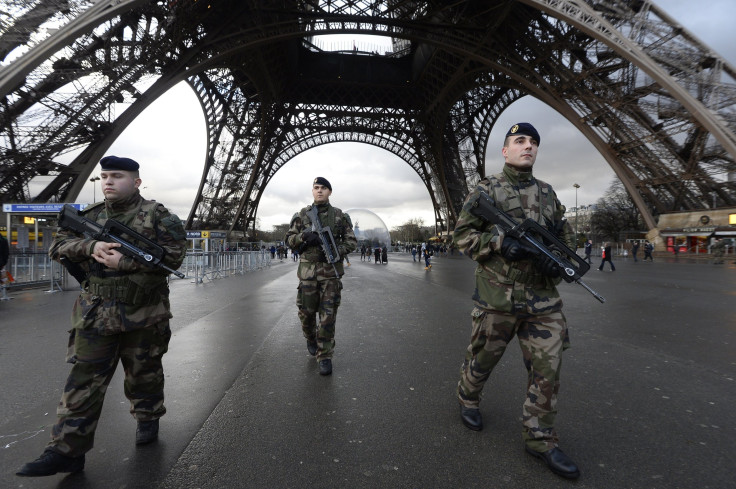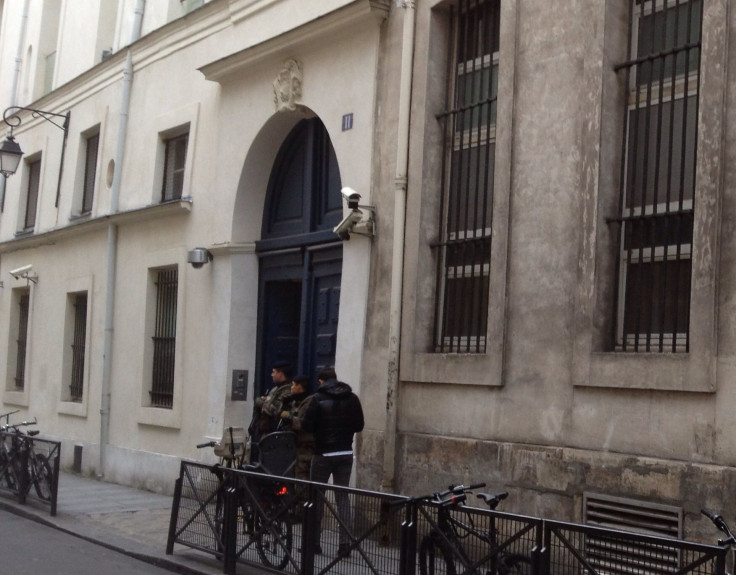Paris Attacks Force French Jews To Decide Between Living In Fear Or Uprooting Their Lives

PARIS -- Along the narrow, cobblestoned Rue des Rosiers in the Marais quarter of Paris Tuesday morning, the usual bustle of the capital's Jewish district was nowhere to be seen. The normally busy kosher bakeries and butchers here were closed. The few that were open were nearly empty.
Fear has forced Paris’ Jewish community into self-imposed hiding, after the deadly jihadist attack on a Hyper Cacher kosher market last week, on the same day as the massacre by Islamist terrorists at French satirical magazine Charlie Hebdo, over its cartoons depicting the Prophet Muhammad. Now there's concern that the fear could cause a mass exodus of Jews from France.
“The Jews in France are no longer safe,” said Dylan, a 23-year-old retail worker, who asked to be identified by only his first name. “Today it's Hyper Cacher, tomorrow will be what?"
Funerals for the four Jewish victims of Friday’s attack at the kosher market on the eve of Shabbat were held in Israel on Tuesday, even though they held French citizenship -- a symbol, some said, of the French Jewish community wanting to return to its roots. Israeli Prime Minister Benjamin Netanyahu called for the community to emigrate, but in Paris, many Jews are torn between wanting to feel safe and having to give up their lives in France, which has Europe's largest Jewish community. With half a million people, it's the second biggest segment of the Jewish Diaspora after the United States.
“I would love to go to Israel, of course. I would feel a lot safer. After everything that happened, there's so much anti-Semitism here,” said Jessica Abittan, 26, who works at kosher restaurant Tchik Tchak. “I work in the Jewish quarter, and you really feel everything. It makes me scared. I work nights and [I'm] scared to find someone who comes in the restaurant to kill me.”
Abittan is a Moroccan Jew who also has Israeli citizenship. Though she has lived in France for five years, she said she doesn’t feel like France is her country.
Last year, roughly 7,000 Jews decided to emigrate to Israel. That's nearly double the number in 2013, and it coincides with a rise in anti-Semitic attacks in France. By comparison, if the same percentage of the American Jewish community emigrated, the U.S. would lose nearly 84,000 Jews in just one year.
Others members of the community have lived in France for decades and are wary of the difficulty that would come with restarting their lives in another country.
“Sometimes we think about it, but we were born in France. We’re French,” said Charlie Saada, owner of the André et Fils butcher shop on Rue des Rosiers. He added that he would feel safer in Israel because "in Israel we have an army, here we have the police... But we can’t always live with the police behind us. That’s not a life.”
Thousands of police and soldiers were stationed in the Marais on Tuesday, as they have been since the attacks, many positioned outside Jewish schools and synagogues. But on the Rue des Rosiers, law enforcement presence was very minimal. International Business Times was able to identify only two armed soldiers in the area, outside a synagogue.

“You saw the army?” said a shocked Zeev Magnichewer, owner of Librairie du Temple, a Jewish bookstore in the Marais, when asked about protection on Rue des Rosiers. “I think if someone came from the other side, they’d have time to kill you, me and him [another employee] without any problems.”
Magnichewer said he has purchased new blinds to cover his storefront after the attack at Hyper Cacher.
Despite France’s efforts to protect the Jewish community after the attack at Hyper Cacher, anti-Semitic violence is nothing new. In 2012, three children and a teacher were killed when a gunman opened fire at a Jewish school in Toulouse. On New Year’s Day in Paris, a fire was started at a synagogue and a swastika drawn on the wall.
Rue des Rosiers itself saw an attack, in 1982. Two people threw a grenade into the kosher restaurant Chez Jo Goldenberg, and then began shooting with automatic weapons. Six people were killed, and at least 20 others injured in the targeted attack many believe was carried out by the Palestinian terrorist Abu Nidal's group.
Since then, smaller, targeted attacks and anti-Semitic harassment have become so frequent, say members of the Jewish community, that they often go unreported.
“A young man who lives in the quarter, his brother was attacked by three guys,” Abbitan said of an incident in mid-December. “They went into his apartment and raped his girlfriend because she was Jewish.” That attack took place three weeks before the massacre at Charlie Hebdo that sparked a religious debate in France.
Dylan and a friend who gave his name as Charlie have dual French and Israeli citizenship. They were in Israel during the past summer’s conflict in the Gaza Strip, they said, and sitting on the beach near Gaza with rockets flying overhead, they felt safer than in their Parisian neighborhoods. The two have a flight booked for Israel later this month, and have yet to book their return.
“People don’t want me here,” said Joseph, a 24-year-old university student who has spent time in the U.S. His parents moved to France after feeling unwelcome in Algeria and Morocco. “I am French. Life is not the same in Israel. We want to stay here, but we’ll leave if we have to leave. It’s our history.”
© Copyright IBTimes 2024. All rights reserved.






















